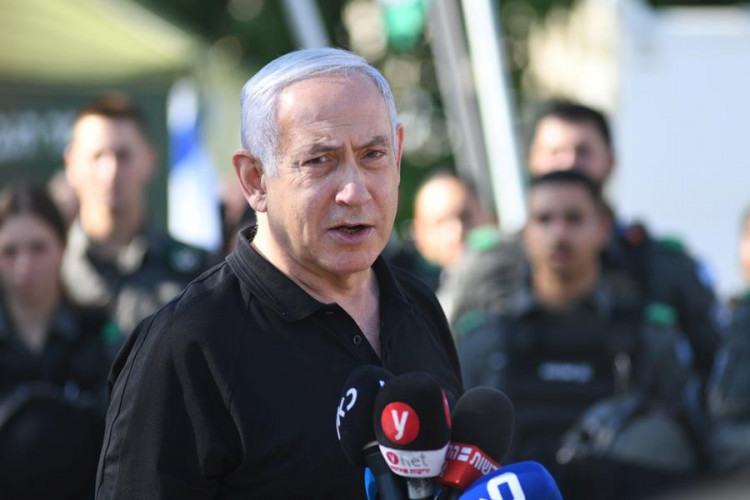Prime Minister Benjamin Netanyahu declared on Wednesday that Israel would make its own decisions about how to defend itself, as Western countries pleaded for restraint in responding to a volley of attacks from Iran. The United States, European Union, and G7 group of industrialized nations announced plans to consider tighter sanctions on Iran, seen as an effort to mollify Israel and persuade it to rein in its retaliation for the first-ever direct Iranian strikes after decades of confrontation by proxy.
Netanyahu's statement came after meetings with German Foreign Minister Annalena Baerbock and British Foreign Secretary David Cameron, who both traveled to Israel as part of a coordinated push to keep confrontation between Israel and Iran from escalating into a regional conflict fueled by the ongoing Gaza war. While expressing appreciation for their support, Netanyahu told the cabinet meeting, "I want to make it clear - we will make our own decisions, and the State of Israel will do everything necessary to defend itself."
Cameron acknowledged that it was now apparent Israel planned to retaliate for the Iranian missile and drone strikes, which Tehran launched on Saturday in response to a presumed Israeli airstrike that killed military officers at its embassy in Syria. However, he urged Israel to carry out its retaliation "in a way that is smart as well as tough and also does as little as possible to escalate this conflict."
Baerbock was more vocal in her opposition to Israel's plan to strike back at Iran, stressing that escalation "would serve no one, not Israel's security, not the many dozens of hostages still in the hands of Hamas, not the suffering population of Gaza, not the many people in Iran who are themselves suffering under the regime, and not the third countries in the region who simply want to live in peace."
More than six months into the Gaza war between Israel and the Iran-backed Palestinian militant group Hamas, diplomats are searching for a way to avert direct battle between Israel and Iran. The Iranian missiles and drones launched on Saturday were mostly shot down by Israel and its allies and caused no deaths, but Israel says it must retaliate to preserve the credibility of its deterrents. Iran, on the other hand, considers the matter closed but threatens to retaliate again if Israel strikes back.
Inside Gaza, Israel has launched a massive air and ground assault, with nearly 34,000 people confirmed killed, according to Palestinian medics, and thousands of others feared dead, still lost among the ruins. Apart from a single week of ceasefire in November when around half of the hostages were freed, diplomats have so far failed to hammer out terms for a truce.
The United States and Israel say access for aid has improved this month, but aid agencies maintain that supplies of food and medicine are still too paltry to stave off humanitarian disaster. The prime minister of Qatar, which has served as a mediator, said negotiations were at a delicate phase, while the Hamas leader, Ismail Haniyeh, is set to visit Turkey in the coming days for talks with President Tayyip Erdogan.
As Western countries grow increasingly uncomfortable with the high civilian death toll in Gaza and call for a ceasefire, Israel maintains that it will discuss a pause to free hostages but will not stop fighting until Hamas is wiped out. Hamas, in turn, says it will not release hostages without a truce leading to an end to the war.




